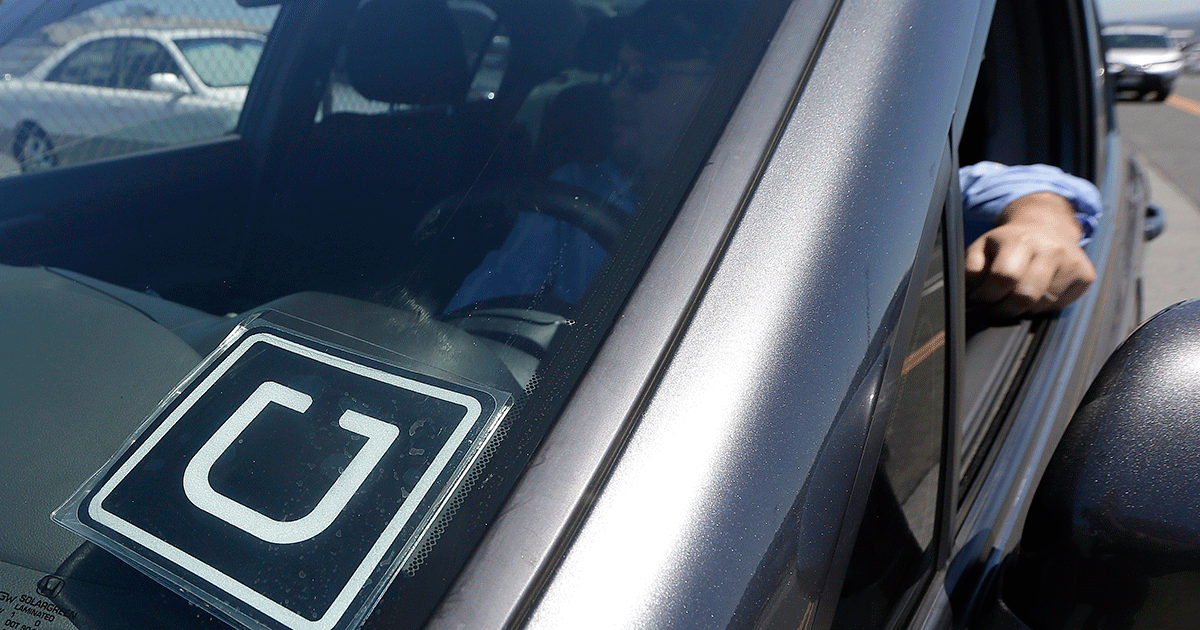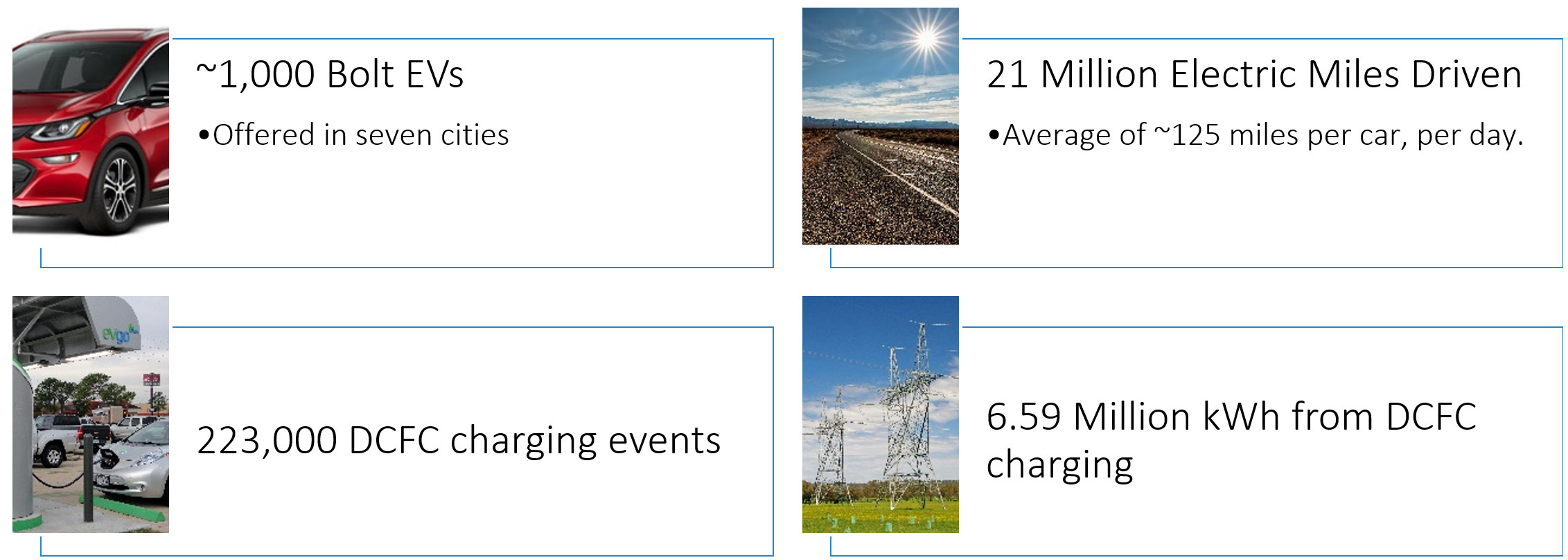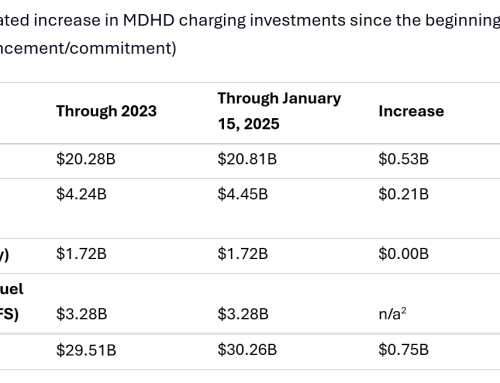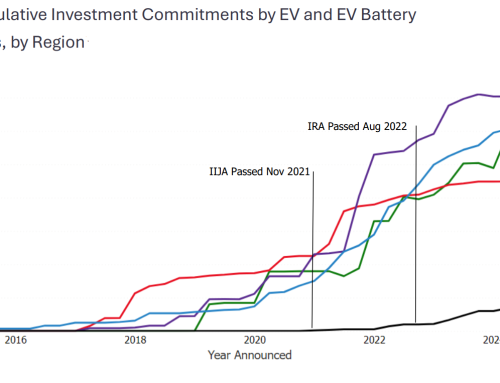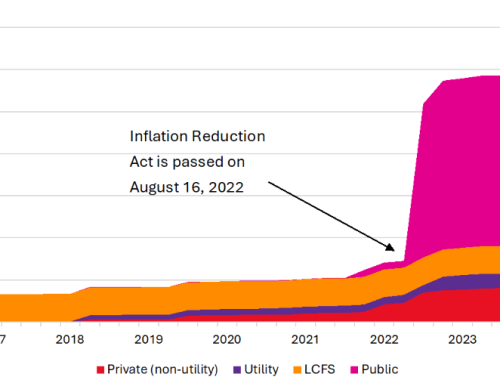Switching to EVs could save drivers for transportation network companies (TNC) like Uber and Lyft thousands. The potential for extra money in their pockets would alleviate pressure as international protests against companies like Uber are picking up steam. Some studies suggest that the average TNC driver makes less than $10 an hour after expenses are considered. Using these assumptions, full-time driver working 125 miles a day could save more than $3,300 a year on fuel cost alone by switching to an EV. Despite these savings, most ride-hail drivers have not made the switch. High upfront costs of EVs and limited access to public charging are barriers for ride-hail drivers who looking to drive EVs. Companies like Maven Gig, GM’s carsharing service, are seeking to bridge these gaps.
To encourage drivers to adopt EVs, Maven offer rentals of Chevy Bolts for a flat rate of $229 per week which includes unlimited miles and the cost of charging at EVgo stations. Maven also offers gasoline-powered vehicle rentals for $199 per week, but drivers have to cover fuel costs. With their charging costs covered, EV drivers can achieve fuel cost savings well in excess of the $1,560 per year extra they would pay for a Bolt rental.
The key to this program and maximizing driver income is direct access to public fast charging. Fast charging reduces the time drivers spend waiting to refuel and lowers the opportunity cost of missed rides. The Bolt’s 238-mile can comfortably cover the average 125 daily miles driven Maven drivers when coupled with short sessions at fast charging stations.
To expand access to public fast charging, Maven and EVgo work directly with cities. Los Angeles has been selected as the home for the first local network, and the second of three hubs was opened on April 22. Los Angeles is a key market for Maven, accounting for 35 percent of the miles traveled across the service over the last two years. Maven’s partnership with other cities including Austin has accelerated public charging deployment. Austin Energy’s Plug-in Everywhere Program offers unlimited charging for a monthly $4 subscription which complements additional programs offering rebates for private charging stations and reduced off-peak charging rates. In cities like Boston that have lower public fast charging density, Maven has partnered with electric companies like Eversource to build out the network.
Summary Statistics for EVs on Maven Gig Through August 2018
This graphic presents data on charging station use and miles driven by Maven’s Bolt Drivers from Early 2017 through August 2018
Source: EV Shared Mobility
These summary statistics demonstrate how Maven drivers provide EVgo with a steady customer base and high charging station usage. High station use is a key driver of profitability for station owners and increasing ride-hail EVs improves the business case for charging stations. Based on usage data, one fast charging station can support between 10 and 12 vehicles per day. A 2016 study estimates that the average urban California EV go station was used between 8 and 16 times a day and the average session lasted less than 30 minutes. Assuming the introduction of Maven EV drivers could add 10 charging sessions per day, annual charging sessions would increase from 4,380 (12 a day) to 8,030 (22 a day).
Maven has already powered 21 million electric miles driven in the seven cities where they offer EVs. These cities, Austin, Baltimore, Boston, Los Angeles, San Diego, San Francisco, and Washington D.C., are among the most active in promoting the expansion of public charging. They also benefit from high electric utility engagement in transportation electrification (see table below).
Charging Deployment and Utility Investments in Seven U.S. Metro Regions
| City | DC Fast Chargers | Level 2 Chargers | Utility Investment^ |
|---|---|---|---|
|
Austin |
34 |
749 |
N/A** |
|
Boston |
99 |
802 |
$66.5 M |
|
Baltimore |
121 |
1,251 |
$25.68 M |
|
D.C. |
175 |
1,443 |
$6.9 M |
|
L.A. |
593 |
6,451 |
$394.43 M |
|
San Diego |
178 |
1,590 |
$69.08 M |
|
San Francisco |
446 |
3,109 |
$407.16 M |
|
Total |
1,646 |
15,393 |
$970 M |
These seven metro areas account for 30 percent of all public DC fast charging stations.
^Indicates best approximation approved utility investment at the metro region level
** Austin has no investor-owned utility filings, but several utility programs through cooperatively owned Austin Energy
Cities and electric utilities will continue to be important partners as Maven ramps up its EV plans. Maven had just 200 Bolts in early 2017. Increasing demand for these vehicles and engagement from partners has expanded the fleet to more than 1,000 vehicles with plans to expand into Denver and New York City. Public fast charging is a necessary investment to encourage EV adoption among TNC drivers. Programs like Maven’s are a promising way to encourage the deployment of public charging so people can drive electric.
Related Content on EV Hub
Learn More
